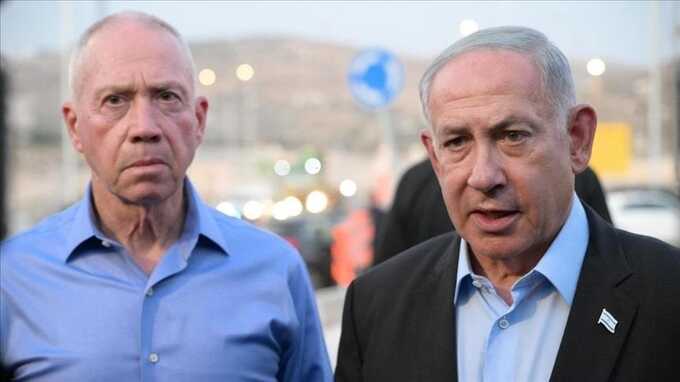Britain drops its challenge to ICC arrest warrants for Israeli leaders
Labour government says it will not pursue questions on court’s jurisdiction over Netanyahu and Gallant
The UK has dropped its opposition to an international arrest warrant for Benjamin Netanyahu, removing a key hurdle to one being issued and underlining the tougher stance being taken towards Israel by the new Labour government.
Downing Street confirmed on Friday that the government would not submit a challenge to the jurisdiction of the international criminal court, whose chief prosecutor, Karim Khan, is seeking a warrant against the Israeli prime minister.
The move, first reported by the Guardian, makes it more likely that the ICC will grant Khan’s request, in what would be a stunning international rebuke for Israel over the way it has conducted the war in Gaza and put Netanyahu at risk of arrest if he travels abroad.
The prime minister Keir Starmer’s deputy official spokesperson said: “On the submission, this was a proposal by the previous government that was not submitted before the election. I can confirm the government will not be pursuing that in line with our longstanding position that this is a matter for the court to decide on.”
She added: “The government feels very strongly about the rule of law internationally and domestically, and the separation of powers, and I would note the courts have already received a number of submissions on either side and they are well seized of the arguments to make their determination.”
She would not be drawn on whether the Labour government had a view on whether a warrant should be issued for Netanyahu’s arrest, saying it was a matter for the courts.
Khan announced in May he was applying for warrants against Netanyahu and his defence minister, Yoav Gallant, for war crimes committed during the country’s attack on Gaza. He is also pushing for ones against senior Hamas leaders including Yahya Sinwar, the Hamas chief in Gaza, and Mohammed Deif, the commander of its military wing.
The former UK prime minister Rishi Sunak criticised Khan’s decision in May and then a month later his government notified the ICC it would lodge a legal challenge to the idea that the court has jurisdiction over Israeli citizens.
Israel and the US, neither of which is a signatory to the ICC, had put pressure on the UK to maintain its objection, warning that dropping it could upset peace negotiations being brokered by Washington.
However, senior Labour figures have long insisted they would respect the independence of the court. David Lammy, the foreign secretary, told the Commons in May: “Labour’s position is that the ICC chief prosecutor’s decision to apply for arrest warrants is an independent matter for the court and the prosecutor.”
The government’s decision does not necessarily mean Khan’s request will now be granted.
Dozens of other groups and countries have told the court they want to make submissions, from a pro-Israeli and pro-Palestinian perspective. They include Germany, which has raised concerns that Khan’s case should not be heard while the conflict in Gaza is still raging.
The UK’s new position indicates it will be a stronger critic of Israel under the Labour government.
Last week Lammy announced the UK would join other countries in restoring funding to the Palestinian relief agency Unrwa, overturning the previous government’s suspension.
The foreign secretary is also preparing to announce a partial ban on the sale of weapons to Israel, sources have told the Guardian.
One source said Lammy was preparing to ban the sale of “offensive” weapons, but not “defensive” ones that could be used to defend Israel from attacks from abroad.
The foreign secretary told the Commons last week: “It would not be right to have a blanket ban between our countries and Israel. What is right is for me to consider in the normal way the issues in relation to offensive weapons in Gaza, following the quasi-judicial process that I have outlined.”
Read more similar news:
Comments:
comments powered by Disqus


































